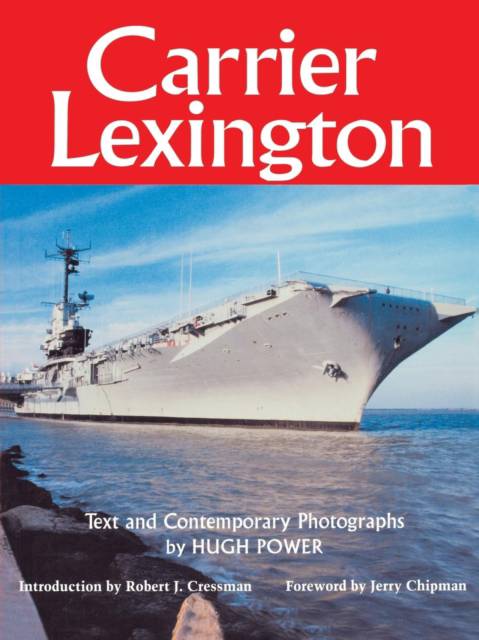
- Afhalen na 1 uur in een winkel met voorraad
- Gratis thuislevering in België vanaf € 30
- Ruim aanbod met 7 miljoen producten
- Afhalen na 1 uur in een winkel met voorraad
- Gratis thuislevering in België vanaf € 30
- Ruim aanbod met 7 miljoen producten
Zoeken
Omschrijving
Carrier Lexington, one of the most famous and formidable of the U.S. Navy warships, lies permanently berthed at Corpus Christi, Texas, her decks and cabins having been converted into a museum that pays tribute to her illustrious war and peacetime record and to the history of naval aviation. The last of the World War II-era aircraft carriers to retire from active duty, Lexington was decommissioned on November 8, 1991, after forty-eight years of service. Entering World War II as the second of the great Essex-class carriers to be commissioned, Lexington destroyed more than one thousand Japanese aircraft, sank more than a million tons of enemy shipping in the Pacific, and in September, 1945, had the honor of being the first American aircraft carrier to enter Tokyo Bay in victory. The Blue Ghost, a nickname derived from Japanese reports that wrongly claimed the sinking of a great blue ship, was one of the most decorated of all U.S. carriers during the war and helped establish the aircraft carrier as the most powerful of warships, replacing the big-gunned dreadnoughts that had ruled the seas through most of the first half of the century. In 1992, Lexington arrived in Corpus Christi, and the massive project to transform the ship into a first-class museum got underway. Photographer-writer Hugh Power has captured every aspect of this great warship through beautiful photography, detailed floor plans, and illuminating text. Serving as the definitive guide to carrier Lexington, this book gives the reader a close look at the technological wonders and fascinating history of U.S. Naval aviation and traces the remarkable emergence of the aircraft carrier as the high seas' most fearsome weapon.
Specificaties
Betrokkenen
- Auteur(s):
- Uitgeverij:
Inhoud
- Aantal bladzijden:
- 176
- Taal:
- Engels
- Reeks:
- Reeksnummer:
- nr. 61
Eigenschappen
- Productcode (EAN):
- 9780890966815
- Verschijningsdatum:
- 4/04/1996
- Uitvoering:
- Paperback
- Formaat:
- Trade paperback (VS)
- Afmetingen:
- 208 mm x 277 mm
- Gewicht:
- 430 g

Alleen bij Standaard Boekhandel
+ 59 punten op je klantenkaart van Standaard Boekhandel
Beoordelingen
We publiceren alleen reviews die voldoen aan de voorwaarden voor reviews. Bekijk onze voorwaarden voor reviews.











